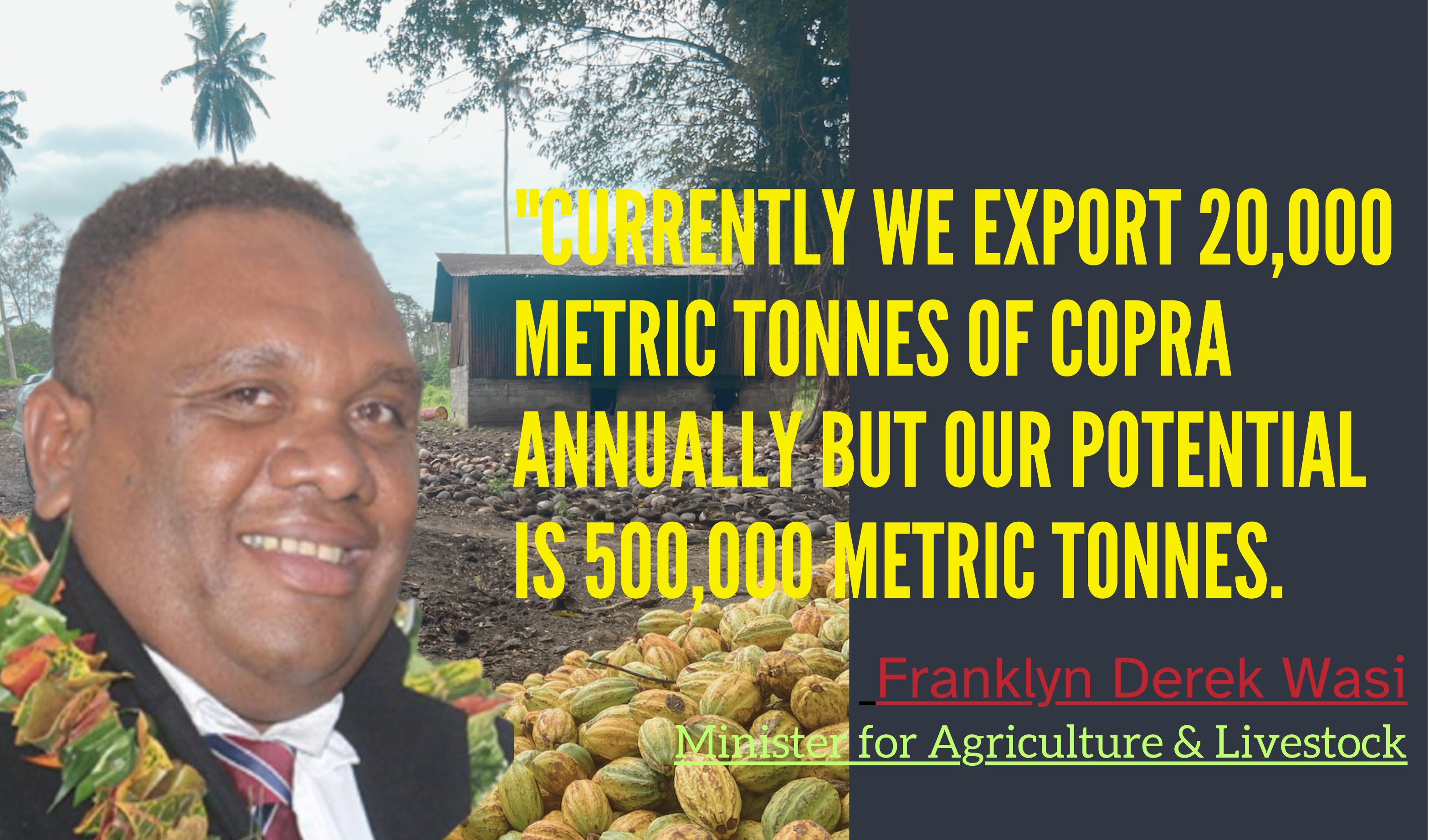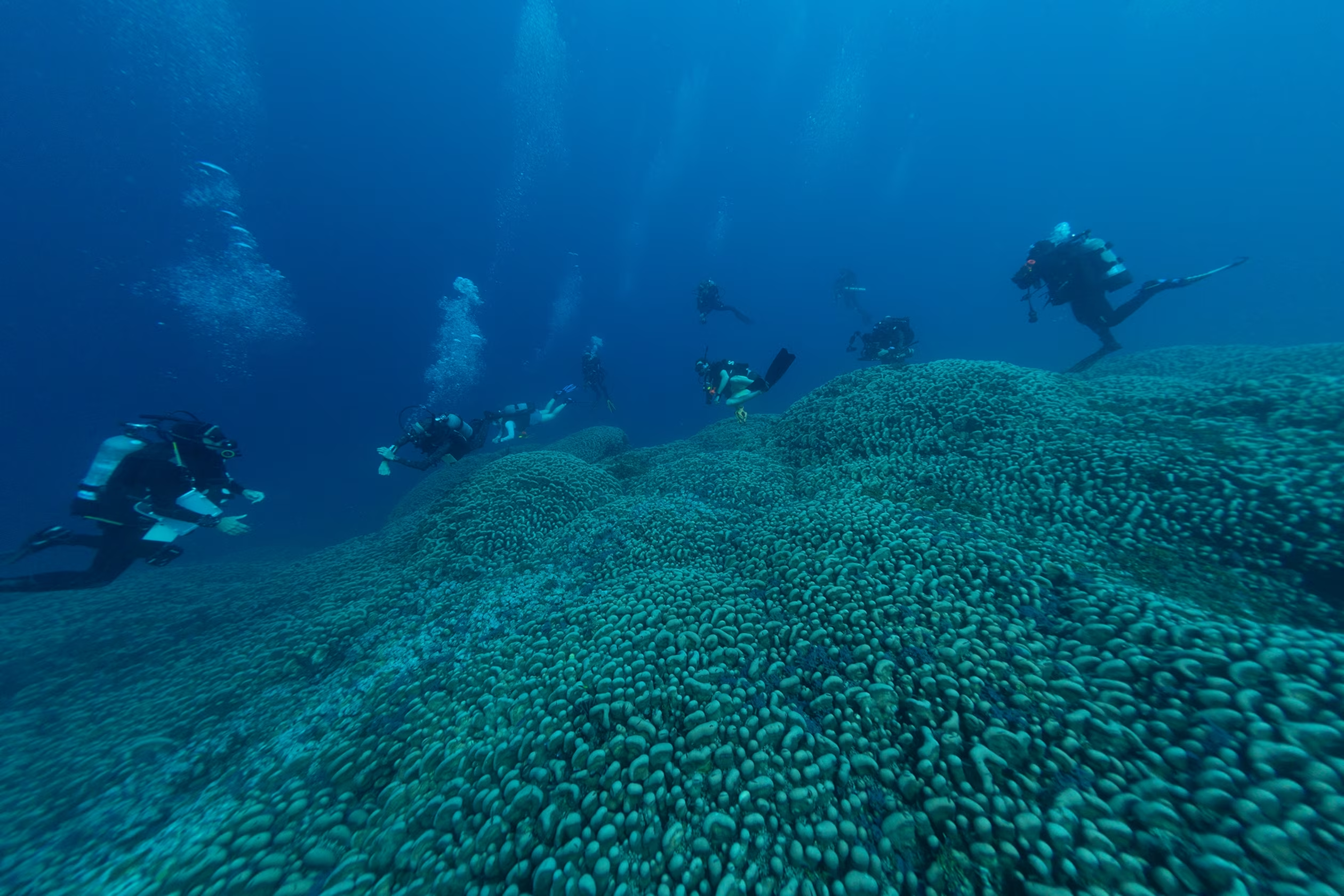
Coconut and cocoa have the potential to become Solomon Islands’ major economic driver, the country’s Agriculture and Livestock minister says.
Franklyn Derek Wasi says currently the country exports 4,000 tons of dried cocoa beans that generate new foreign earnings of SBD$247 million per annum, at current world market price.
“But our potential is 23,000 tons of dried cocoa beans,” Wasi said.
“Considering our limitations and challenges, the ministry is only targeting 12,000 tons in the next few years,” he added.
“This should generate new foreign revenue of SBD$741 million per annum, from cocoa exports alone, should the current market price remain high.
“Another crop with a huge potential for immediate return is coconut and copra.
“Currently we export 20,000 metric tonnes of copra annually but our potential is 500,000 metric tonnes.
“The ministry along with important stakeholders like CEMA are targeting just one fifth of our potential which is 100,000 metric tonnes.
“This will in turn give us a new foreign earning of SBD$462 million per annum.
“…combining these two commodity exports alone, we can reach these targets in the next three years, and should earn a projected foreign earning of SBD$1.2 billion per annum from copra and cocoa dried beans alone, and this is still with no value addition.”
Apart from cocoa and coconut, Wasi said his ministry is working very closely with the Australian High Commission Office in Honiara through its Department of Foreign Affairs and Trade (DFAT) to sort out export of pineapples to Australia.
“The ministry is also working very closely with SAPE farm for its state-of-the-art cassava processing facility to become operational soon and hopefully, it should start exporting 15 tons of frozen cassava to Australia on monthly basis.
“As you can see, our potential in the agricultural export sector is huge and still very much untapped.”
Meanwhile, Minister Wasi said livestock farmers continue to face high cost of feed imported from abroad, therefore he said his ministry is working closely with the World Bank and Food and Agriculture Organization (FAO) through their existing projects and Technical Cooperation Programmes (TCPs) with us, to tackle this.
“We are also collaborating with other technical institutes from China to establish fully mechanized commercial rice farming and vegetable production along with new emerging crops.
“Currently our annual rice import sits between SBD$400-$500 million.
“This is captured under our policy priority to diversify the agriculture production base and advance import substitution.
“Other areas to be targeted in our policy priority include sizeable support to our poultry, piggery and honey farmers but with consideration on the economies of scale.
“For cattle, the ministry is seriously thinking of partnering with the private sector to grow this industry in the country.”
He further said that since the ethnic tension, the ministry has been without a research Centre.
“This has greatly hampered our efficiency in providing up to date relevant information and techniques on farming practices.
“The intention now is to redevelop our Agriculture Research Center to be fully equipped with facilities for field research work on farm mechanization, high value crops, staple food crops, root crops, spices, new emerging crops and fruit trees, improved livestock genetic resources and downstream processing and value-adding technologies to bolster production for both local consumption and export markets.
“In the current era with rising sea levels and the effects of climate change, Agriculture must evolve and become resilient against all these shocks.
“The ministry is therefore exploring strategies with its partners to implement climate smart agriculture to improve access to nutritious diet in our rural communities.
“This include encouraging our youths to venture into agribusiness.
“As our development and growth continue to expand, we become more susceptible to introduced pests and diseases.
“Therefore, securing our flora and fauna against Invasive Alien Species and facilitating access to new markets is a top priority for the ministry,” he added.



















